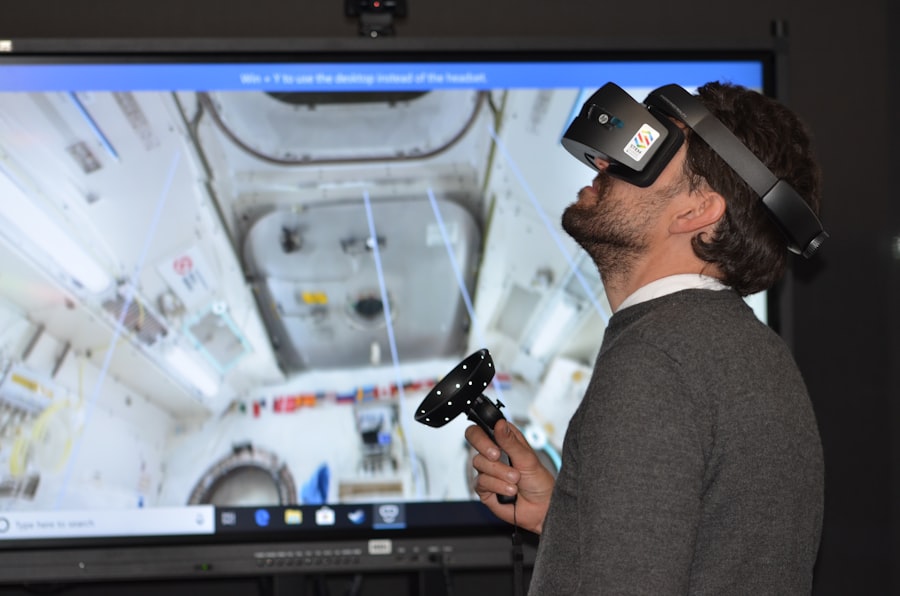Richard Sorabji is a distinguished philosopher whose work has significantly influenced contemporary thought, particularly in the realms of ethics, metaphysics, and the philosophy of mind. His intellectual journey has been marked by a deep engagement with ancient philosophy, especially the works of Aristotle and the Stoics, which he interprets through a modern lens. Sorabji’s philosophical perspective is characterized by a commitment to clarity and rigor, often challenging prevailing assumptions while advocating for a nuanced understanding of complex issues.
His ability to bridge the gap between ancient wisdom and contemporary dilemmas makes his insights particularly relevant in today’s rapidly evolving technological landscape. Sorabji’s approach to philosophy is not merely academic; it is deeply rooted in the practical implications of philosophical inquiry. He emphasizes the importance of understanding human nature and the ethical dimensions of our choices.
This perspective is especially pertinent when considering the emergence of the metaverse—a digital universe that promises to reshape our interactions, identities, and experiences. By examining the metaverse through Sorabji’s philosophical lens, we can gain a deeper understanding of its potential benefits and pitfalls, as well as the ethical considerations that arise from its development.
Key Takeaways
- Richard Sorabji is a prominent philosopher known for his work in ancient philosophy and ethics.
- The metaverse is a virtual reality space where users can interact with a computer-generated environment and other users.
- According to Sorabji, the metaverse has the potential to enhance creativity, collaboration, and communication.
- Sorabji also raises concerns about the potential for addiction, escapism, and loss of genuine human connection in the metaverse.
- Ethical considerations of the metaverse include issues of privacy, identity, and the impact on mental health.
The concept of the metaverse and its implications
Understanding the Metaverse and Its Potential
The metaverse offers a wide range of opportunities for connection, creativity, and innovation, enabling individuals to express themselves in ways that transcend geographical limitations. As we explore this digital realm, it becomes essential to consider how it will affect our understanding of existence and community. The metaverse has the potential to bring people together, foster global understanding, and provide unparalleled access to information and resources.
The Challenges of the Metaverse
However, this transformation also raises critical questions about identity, agency, and the nature of reality itself. The metaverse poses challenges related to authenticity and the potential for disconnection from the physical world. As we spend more time in virtual environments, we risk losing touch with the physical world and the relationships that make us human. It is crucial to address these challenges and ensure that the metaverse is developed in a way that promotes healthy and balanced interactions between the physical and digital worlds.
Sorabji’s philosophical insights can help illuminate the complexities of the metaverse, encouraging us to reflect on what it means to be human in an increasingly digital age. By examining the metaverse through a philosophical lens, we can gain a deeper understanding of its implications and potential consequences. This will enable us to make informed decisions about how to develop and engage with the metaverse, ensuring that it enhances our lives and promotes a more compassionate and connected world.
Embracing the Future of the Metaverse
As we move forward into the metaverse, it is essential to prioritize transparency, accountability, and social responsibility. By doing so, we can create a digital realm that is inclusive, equitable, and just. The metaverse has the potential to revolutionize various aspects of our lives, and it is up to us to shape its development and ensure that it benefits humanity as a whole.
The positive aspects of the metaverse according to Richard Sorabji

From Richard Sorabji’s perspective, the metaverse holds significant promise for enhancing human experience and fostering connections among individuals. One of the most compelling advantages is its potential to create inclusive spaces where people from diverse backgrounds can come together. In a world often divided by geographical, cultural, or social barriers, the metaverse offers a platform for dialogue and collaboration that transcends these limitations.
Sorabji might argue that this democratization of interaction aligns with his belief in the importance of community and shared understanding. Moreover, the metaverse can serve as a powerful tool for education and personal growth.
For instance, students can explore historical events or scientific concepts through interactive simulations, deepening their understanding and retention of knowledge. Sorabji would likely appreciate this aspect of the metaverse as it reflects his commitment to intellectual inquiry and the pursuit of wisdom. By harnessing technology to enhance learning, we can cultivate a more informed and thoughtful society.
The negative aspects of the metaverse according to Richard Sorabji
Despite its potential benefits, Richard Sorabji would not shy away from addressing the darker implications of the metaverse. One significant concern is the risk of alienation and disconnection from reality. As individuals immerse themselves in virtual worlds, there is a danger that they may neglect their physical surroundings and relationships.
Sorabji’s emphasis on human connection and community highlights the importance of maintaining a balance between digital engagement and real-world interactions. He might argue that while the metaverse can facilitate connections, it should not replace the richness of face-to-face relationships. Additionally, issues related to privacy and data security loom large in discussions about the metaverse.
As users navigate these digital spaces, they leave behind traces of their behavior that can be exploited by corporations or malicious actors. Sorabji would likely raise ethical concerns about consent and autonomy in this context. The commodification of personal data challenges our understanding of agency and selfhood, prompting us to question who truly controls our digital identities.
In this light, Sorabji’s philosophical inquiries into ethics become crucial as we navigate the complexities of a world increasingly governed by technology.
Ethical considerations and implications of the metaverse
The ethical landscape surrounding the metaverse is intricate and multifaceted, demanding careful consideration from philosophers like Richard Sorabji. One pressing issue is the question of identity in virtual spaces. As individuals create avatars and personas that may differ significantly from their real-world selves, we must grapple with what authenticity means in this context.
Sorabji’s exploration of selfhood could provide valuable insights into how we navigate these dual identities while remaining true to our core values. Furthermore, the metaverse raises questions about power dynamics and inequality. Access to technology varies widely across different populations, potentially exacerbating existing disparities.
Sorabji would likely advocate for a more equitable approach to the development and governance of the metaverse, emphasizing the need for inclusivity and representation. Ethical considerations must extend beyond individual experiences to encompass broader societal implications, ensuring that marginalized voices are heard in shaping this new digital frontier.
The potential impact of the metaverse on society and individuals

Redefined Social Dynamics
The metaverse has the potential to redefine work, leisure, and social interaction, but it also risks reinforcing existing inequalities if not approached thoughtfully. This shift in social dynamics could have far-reaching consequences, affecting how we interact with one another and the world around us.
Individual Identity and Expression
On an individual level, the metaverse could alter our perceptions of self and community. As people engage with virtual environments, they may find new avenues for self-expression and creativity. However, this shift could also lead to existential questions about identity and belonging.
Sorabji’s philosophical inquiries into human nature would encourage us to reflect on how these changes shape our understanding of ourselves and our relationships with others. Ultimately, navigating this new terrain requires a balance between embracing innovation and preserving our fundamental humanity. As we move forward, it is essential to consider the potential implications of the metaverse on our collective values and priorities, ensuring that we create a digital world that promotes equality, creativity, and human connection.
Embracing a Balanced Future
By doing so, we can harness the potential of the metaverse to create a brighter, more inclusive future for all, where technology and humanity coexist in harmony.
Richard Sorabji’s perspective on the role of technology in shaping human experience
Richard Sorabji has long been an advocate for examining how technology influences human experience. He recognizes that while technological advancements can enhance our lives in many ways, they also pose challenges that require careful consideration. In discussing the metaverse, Sorabji would likely emphasize that technology should serve as a tool for enriching human experience rather than replacing it.
Sorabji’s perspective encourages us to view technology not as an end in itself but as a means to foster connection, understanding, and growth. In this light, the metaverse can be seen as an opportunity to explore new dimensions of human interaction while remaining grounded in our shared humanity.
By approaching technological developments with a philosophical mindset, we can navigate the complexities of the digital age while upholding our ethical responsibilities.
Reflecting on the metaverse through the lens of Richard Sorabji’s philosophy
In conclusion, Richard Sorabji’s philosophical insights provide a valuable framework for understanding the multifaceted implications of the metaverse. His emphasis on community, ethics, and human nature encourages us to approach this digital frontier with both optimism and caution. While the metaverse offers exciting possibilities for connection and creativity, it also presents challenges that demand thoughtful consideration.
As we navigate this evolving landscape, Sorabji’s perspective reminds us of the importance of maintaining our humanity amidst technological advancements. By engaging critically with the metaverse—acknowledging its potential benefits while addressing its ethical dilemmas—we can shape a future that reflects our highest values as individuals and as a society. Ultimately, reflecting on the metaverse through Sorabji’s philosophy invites us to envision a digital world that enhances rather than diminishes our shared human experience.
If we were to ask philosopher Richard Sorabji for his thoughts on the metaverse in an interview, he would likely provide a nuanced perspective on both the positive and negative aspects of this emerging technology. In a related article on the impact of the metaverse on industries such as entertainment and media, Sorabji might discuss how the immersive nature of the metaverse could revolutionize the way we consume content and interact with others. However, he may also caution against the potential negative consequences of increased reliance on virtual reality and the blurring of boundaries between the real world and the digital realm. To read more about the intersection of the metaverse and various industries, check out this article.
FAQs
What is the metaverse?
The metaverse is a collective virtual shared space, created by the convergence of virtually enhanced physical reality and physically persistent virtual reality. It is a concept that has gained popularity in recent years with the advancement of virtual reality and augmented reality technologies.
Who is Richard Sorabji?
Richard Sorabji is a philosopher and scholar known for his work in ancient philosophy, especially on the ancient Greek and Roman philosophers. He has written extensively on topics such as ethics, metaphysics, and the history of philosophy.
What would Richard Sorabji say about the metaverse?
As a philosopher, Richard Sorabji might approach the concept of the metaverse from a philosophical perspective, considering its implications for human experience, ethics, and the nature of reality. He might explore questions about the authenticity of experiences in the metaverse, the impact on human relationships, and the ethical considerations of virtual interactions.
What positive aspects of the metaverse might Richard Sorabji highlight?
Richard Sorabji might acknowledge the potential for the metaverse to provide new opportunities for creativity, collaboration, and exploration. He might also consider how the metaverse could expand access to education, entertainment, and social connections for people around the world.
What negative aspects of the metaverse might Richard Sorabji discuss?
Richard Sorabji might raise concerns about the potential for the metaverse to blur the boundaries between reality and virtuality, leading to issues of identity, authenticity, and ethical behavior. He might also consider the impact of the metaverse on privacy, mental health, and social inequality.











Leave a Reply